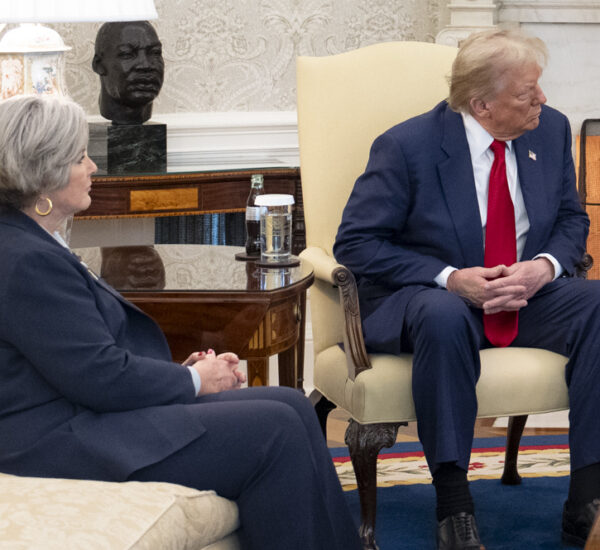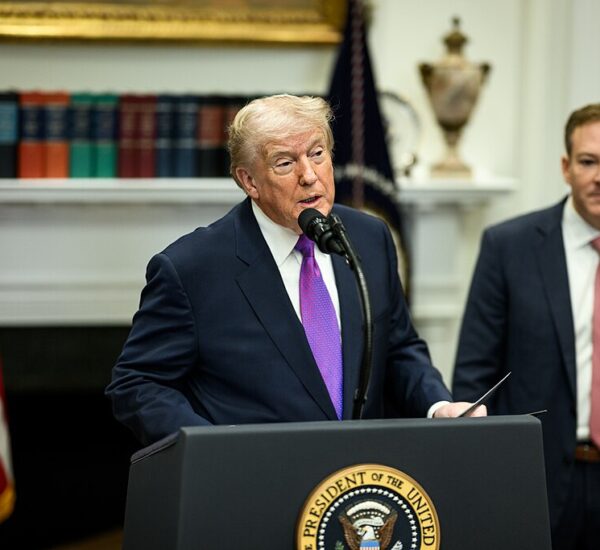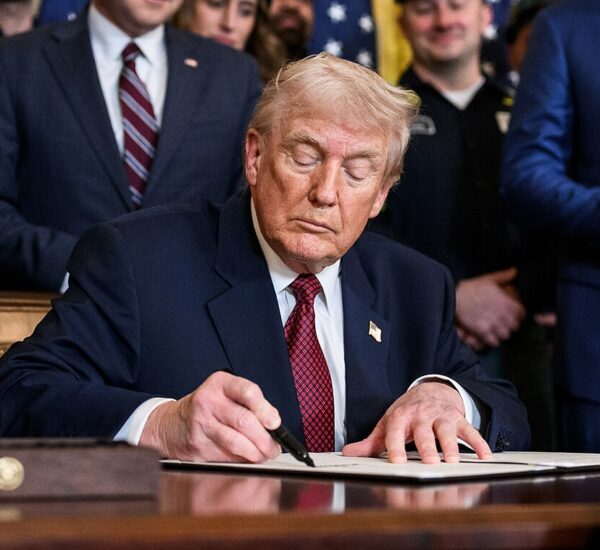This was surprising to hear from a Court Justice.
Former Supreme Court Justice Stephen Breyer is pushing back against efforts to impeach federal judges over their rulings, arguing that judicial decisions should not be overturned through political pressure.
💡 Key Takeaways:
✔️ Justice Breyer says impeachment is not the right response to judicial rulings
✔️ Judge James Boasberg blocked Trump’s deportation order for foreign gang members
✔️ President Trump and Rep. Brandon Gill (R-TX) call for impeachment
✔️ Supreme Court Chief Justice John Roberts also defends judicial independence
Breyer Responds to Calls for Judge’s Impeachment
Retired Supreme Court Justice Stephen Breyer weighed in on the growing debate over judicial independence, stating that efforts to impeach judges over controversial rulings are inappropriate and go against centuries of legal tradition.
“For more than 200 years, it has been well-established that impeachment is not an appropriate response to disagreement over a judicial decision,” Breyer said in a CNN interview, quoting Supreme Court Chief Justice John Roberts.
The controversy began after Judge James Boasberg issued a 14-day restraining order blocking the deportation of suspected Tren de Aragua gang members—one of the world’s most dangerous criminal organizations.
President Donald Trump strongly opposed the ruling, arguing that these deportations were legally justified under the Alien Enemies Act of 1798, which grants the government the authority to remove illegal immigrants deemed a national security threat.
🚨 What Happened?
- Trump called for Boasberg’s impeachment, condemning the ruling as a threat to national security.
- Rep. Brandon Gill (R-TX) introduced articles of impeachment against Boasberg, arguing that federal judges should not interfere with deportation efforts.
- Breyer disagrees, saying judges should not be impeached over political disagreements.
Judicial Independence or Political Overreach?
Breyer emphasized that America’s legal system has built-in processes to challenge judicial decisions, such as appeals and higher court rulings, rather than political retaliation.
“You move on in the legal process,” Breyer said, arguing that impeachment should not be used as a tool to remove judges based on controversial rulings.
His comments align with Chief Justice John Roberts, who issued a rare public statement:
🗣️ “For over 200 years, it has been engrained that impeachment is not the right response to conflicts concerning a judicial decision. The regular appellate review process is in place for that purpose.”
Breyer added that most Americans are not lawyers or judges and may not fully understand how the legal system works, making Roberts’ statement a necessary educational message to the public.
What This Means for America’s Courts
Justice Breyer’s remarks highlight the ongoing battle over judicial power in the United States. As judges continue to rule on hot-button issues like immigration, election integrity, and national security, calls for accountability are likely to grow.
🔹 Will impeachment become a political weapon?
🔹 Should judges be held accountable for blocking deportations?
🔹 Is America’s legal system being undermined by activist rulings?
With 2024 elections approaching, these questions will be central to the national debate. Expect this issue to remain in the spotlight as lawmakers and voters demand action on judicial overreach.
📢 What do you think? Should judges be impeached for controversial rulings? Let us know in the comments!
Final Thoughts
Justice Breyer’s defense of judicial independence sets the stage for a broader conversation on the balance of power in government. While the courts have traditionally been seen as neutral arbiters of the law, their increasing role in high-profile cases has led to growing scrutiny from conservatives and constitutionalists.
As the battle over America’s courts heats up, one thing is certain: the future of the judiciary is at stake.
👉 Stay tuned for more updates on judicial rulings, immigration policies, and conservative legal battles.






If impeachment isn’t the answer then fine them hundreds of thousands of dollars for federal obstruction of a sitting president that the American people voted for not some lame duck asshole backwoods judge who is bought and paid for by democrats. They should be removed from the bench immediately this is what the people want. These judges weren’t voted by the people but the people want them removed immediately
LOVED YOUR COMMENTS!!!
Read the Constitution!!! Judges have no authority over Excutive branch.
Read the CONSTITUTION judges have no power over the Excutive branch. IMPEACH Them.
This judge should be ashamed of himself first of all he’s biased. Second of all he’s got issues with his daughter and his wife who are biased and the daughter is working at USAID and as we all know it’s a very corrupt agency. More importantly he’s demanding that illegal gang members terrorists should be returned to the United States. Maybe he should be thinking about the American taxpaying people and how to protect them instead of illegal terrorist gang members cartels That are causing havoc in this country and have killed and raped. I think that should be his first and foremost concern
WELL SAID!!! THE COMMENTS REFLECT ALL 74+ MILLION VOTERS!!!
I agree with you to fine the judges who issues these injunctions against the mandates of the people and their upkeep.
I agree with Maud and Martin’s comments – Read the Constitution, The President, that elected individual IS, the EXECUTIVE, and Trump’s actions are Executive actions per the Constitution.
As AG Pan Bondi said “… POUND SAND”